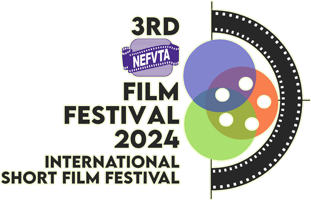Of late, film workshops and labs have become invaluable resources for aspiring filmmakers, screenwriters and producers looking to hone their craft and break into the competitive world of cinema.
These workshops offer a unique blend of education, mentorship, collaboration, and practical experience, helping individuals transform their creative visions into compelling stories on the silver screen. Come to think of it, in Northeast India itself in recent years, several films have benefitted immensely from such labs, the most-recent example being Dominic Sangma’s Garo film “Rimdogittanga” (Rapture), which had its world premiere at the 2023 Locarno Film Festival and since then have been earning accolades at important film festivals across the world. Several film professionals from the region have in recent years have attended prestigious film labs across the world, held for both fiction and non-fiction filmmakers. Why film labs and workshops are important? The answer to this question would throw up several reasons, a few of which are being addressed below.
Education and Skill Development:
Film workshops and labs are structured to provide participants with a comprehensive understanding of the art and science of storytelling. These programmes often cover a wide range of topics, including screenwriting techniques, film production, cinematography, directing, and editing. Participants gain insights into the nuances of character development, plot structure, dialogue, and visual storytelling. This educational component equips them with the essential skills and knowledge required to create engaging and impactful films. Different labs have different perspectives and goals: there are workshops for projects in development (that is at research or script) stage, rough-cut stage and work-in-progress stage. Producers’ labs, on the other hand, focus on sharing knowledge about film production.
Industry Insights:
One of the significant benefits of these workshops and labs is the opportunity to learn from industry professionals. Experienced filmmakers, screenwriters, directors, and producers often serve as instructors or mentors in these programmes. Their guidance, feedback, and real-world anecdotes provide invaluable insights into the workings of the film industry. Participants gain a deeper understanding of the industry's trends, challenges, and opportunities, which can be instrumental in launching their careers.
Hands-On Experience:
Film and screenplay workshops and labs emphasize on practical learning. Participants are encouraged to apply what they've learned by working on actual film projects. This hands-on experience allows them to develop their creative skills in a supportive and collaborative environment. Whether it's writing a screenplay, directing a short film, or editing a scene, participants get a taste of the filmmaking process and learn to navigate its complexities.
Networking Opportunities:
The film industry is highly collaborative, and connections often play a crucial role in one's success. Workshops and labs provide a fertile ground for networking. Participants interact with fellow aspiring filmmakers and industry professionals, forging relationships that can lead to future collaborations. These connections can open doors to opportunities such as finding producers, securing funding, or landing jobs in the industry.
Feedback and Critique:
Constructive criticism is a cornerstone of growth in the world of film and screenwriting. These programs offer a safe space for participants to receive feedback on their work. Whether it's a screenplay reading or a rough cut screening, participants get a chance to have their work evaluated by instructors and peers. This feedback loop helps them identify strengths and weaknesses in their projects, leading to continuous improvement.
Access to Resources:
Many film and screenplay workshops and labs provide access to resources that might otherwise be challenging to obtain. This can include equipment, software, production facilities, and funding opportunities. Participants often gain access to these resources during the programme, making it easier for them to produce high-quality films and screenplays.
Exposure and Recognition:
Some workshops and labs are associated with prestigious film festivals or competitions. Participation in such programs can provide exposure to industry professionals, critics, and audiences. Winning or being selected for these affiliated events can lead to recognition and opportunities that might otherwise be elusive.
In a sense, film and screenplay workshops and labs serve as incubators for talent, offering education, mentorship, practical experience, and networking opportunities to aspiring filmmakers and screenwriters. These programmes play a vital role in nurturing and developing the next generation of storytellers, ensuring that the world of cinema continues to evolve with fresh and innovative voices. As the film industry remains highly competitive, these workshops and labs remain a valuable stepping stone for those with dreams of making their mark in the world of film.
Some of the leading film and screenplay workshops and labs across the world are as follows:
Sundance Institute Labs:
Sundance Institute is known for its prestigious Screenwriters Lab and Directors Lab. It offers mentorship and support to emerging filmmakers and screenwriters, helping them develop their projects.
The American Film Institute Conservatory:
AFI's Conservatory provides an intensive programme for filmmakers, including screenwriters, directors, cinematographers, and editors. It's well-regarded for its hands-on training and emphasis on storytelling.
The Sundance Screenwriters’ Workshop:
Sundance's Screenwriters' Workshop is focused on nurturing emerging screenwriting talent. It offers mentorship, script development, and access to industry professionals.
Film Independent (FIND):
Film Independent offers various programmes and labs, including the Screenwriters Lab, Director's Lab, and Producing Lab. It supports independent filmmakers in developing and producing their projects.
Berlinale Talents:
Part of the Berlin International Film Festival, Berlinale Talents is a networking and development platform for emerging filmmakers worldwide. It offers workshops, mentoring, and networking opportunities.
TIFF Filmmakers’ Lab:
TIFF's Filmmaker Lab provides emerging filmmakers with mentorship, networking, and project development opportunities during the Toronto International Film Festival.
The Cannes Film Festival’s Cinefondation Residency:
The Cinefondation Residency programme at Cannes supports young filmmakers in developing their first or second feature film projects. It provides a creative and professional environment for filmmakers.
Some other important labs are organised by Torino Film Festival, Hong Kong International Film Festival and Talinn Black Nights Film Festival. It is important to note that each film lab or workshop might have its own, specliased structure and format of application. Hence, it’s advisable for prospective applicants to study their respective websites carefully before applying. And it goes without saying that even the application process involves lot of meticulous preparation and writing, which is very important given that even to get selected to a lab is a highly-competitive process.
Indian cinema has witnessed a remarkable transformation in recent years, with a growing number of films benefiting from screenplay and film workshops and labs. These programs have played a pivotal role in nurturing emerging talents, refining storytelling techniques, and fostering a new wave of Indian cinema that resonates both nationally and internationally. Here are some notable Indian films that have emerged from these workshops and labs and have left a lasting impact:
Some prominent Indian films of recent years, such as Masaan (2015), Court (2014),
The Lunchbox (2013), Killa (2014), Ship of Theseus (2012) and Thithi (2015) have benefitted from participating in workshops. These success stories have encouraged aspiring filmmakers to explore innovative narratives and push the boundaries of traditional filmmaking, contributing to the vibrant and diverse landscape of Indian cinema.
In fact, South Asia too has several important film labs. And some film labs elsewhere in the world have in recent years selected South Asian projects in significant numbers. Such labs and workshops dedicated to both fiction and documentary filmmaking have played a crucial role in nurturing and promoting cinematic talent in South Asia. These initiatives have provided emerging filmmakers with opportunities to not only develop their craft but also create compelling narrativesand shed light on important socio-cultural issues. Some prominent labs and workshops that are specially important from the Indian context are as follows:
NFDC Screenwriters’ Lab, Film Bazaar (India):
Organized by the National Film Development Corporation (NFDC), the Film Bazaar is a prominent platform for fiction filmmakers. It includes the Screenwriters' Lab, where aspiring screenwriters receive mentorship and script development support. Apart from the Screenwriters' Lab, the NFDC Film Bazaar conducts a Work-in-Progress Lab, which helps filmmakers fine-tune their projects at various stages of production. This lab has been instrumental in bringing innovative Indian films to fruition.
Asian Film Academy (South Korea):
Asian Film Academy, part of the Busan International Film Festival, offers a comprehensive training program for young Asian filmmakers. It provides hands-on experience and mentorship in various aspects of fiction filmmaking, from screenwriting to production.
Film Independent Global Media Makers’ Fellowship, USA:
Film Independent's Global Media Makers Fellowship has supported Indian filmmakers by offering mentorship, industry access, and workshops in both fiction and documentary filmmaking. This programme facilitates cross-cultural collaborations and promotes diversity in storytelling.
IDFA Academy Labs:
While not located in South Asia, IDFA (International Documentary Festival, Amsterdam) Academy is renowned for its international documentary programme. It has provided Indian and other South Asian filmmakers with invaluable guidance in documentary storytelling over the years.
DocEdge Kolkata:
DocedgeKolkata is a documentary film pitching forum and market in South Asia. It offers opportunities for documentary filmmakers to present their projects to potential funders, broadcasters, and distributors.
Dhaka DocLab:
Dhaka DocLab is another important documentary film lab in South Asia. It every year mentors a number of socially-significant documentary projects from development to rough-cut stage.
These fiction and documentary filmmaking labs and workshops have had a profound impact on South Asian and Indian cinema. Thee have encouraged filmmakers to explore diverse narratives, reflecting the rich cultural and social tapestry of South Asia. This diversity in storytelling has led to a broader representation of voices and experiences in Indian and South Asian cinema.Documentary labs, in particular, have been instrumental in shedding light on crucial socio-cultural and political issues. Many documentary films developed through these programmes have contributed to awareness and advocacy on a wide range of topics.These labs and workshops often facilitate collaboration between South Asian and international filmmakers. This cross-cultural exchange has helped in the global promotion of South Asian cinema in recent years.
(The writer is a filmmaker and former film critic. His projects have been selected to NFDC Screenwriters’ Lab and Dhaka DocLab in recent years).



